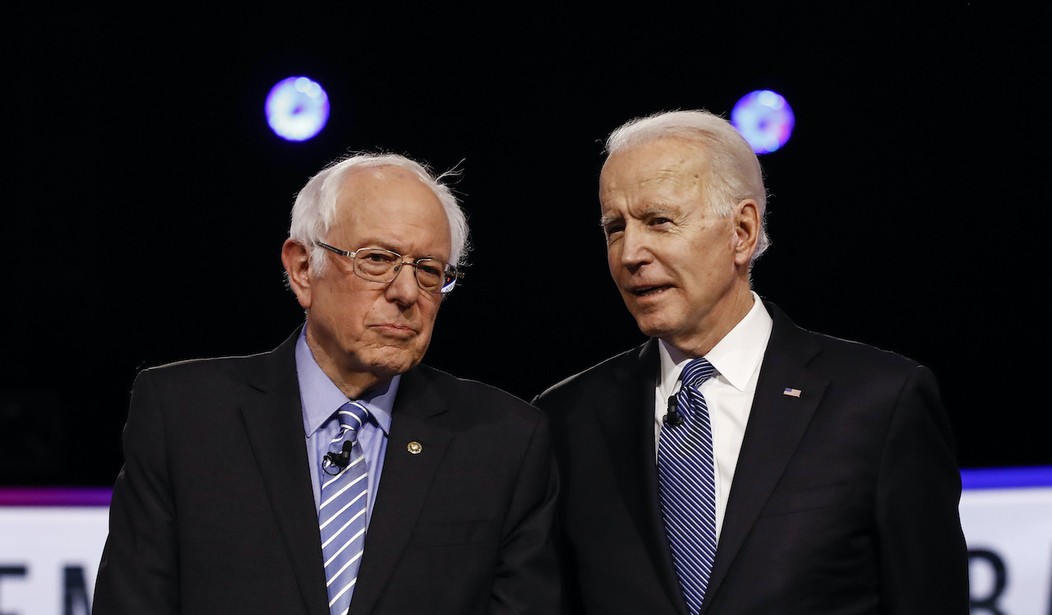Washington, DC. – Joe Biden likes to talk about how “unions built this country.” And, up to a point, he’s right. From FDR to Nixon, the American labor movement held considerable sway over the nation’s economic destiny.
Since the 70s, a decade marked by economic extremes Biden’s policies are causing us to revisit, unions have been in decline. The U.S. Bureau of Labor Statistics reports participation in the labor movement to be down across the board. Unionized private sector workers represent just 6.1 percent of the labor force, an all-time low, while the total number of those in unions dropped last year by almost a quarter of a million.
The labor movement has lost a lot of its clout. What remains comes because the rank and file are held captive by the union bosses who extract political contributions from them to what remains of its political influence. To put it another way, it’s the number of dollars they provide to the politicians, not the number of members who can vote that account for what influence remains.
The union bosses would have you believe membership is down because it’s too hard to organize. They want the politicians who are still in their hip pockets to let them boost their numbers by resetting the clock to the days when people had to join a union as a condition of their employment whether they wanted to or not.
It’s an interesting theory but it doesn’t fit the facts. America’s workers no longer need union representation as they once did. Employers in the post-industrial era are smarter, offer better pay and benefits, greater flexibility on the job site, and more input into operations than many union shops allow.
Recommended
The unions, of course, would argue against this. But what do they have to show in the way of success? The high-profile 2021 effort to organize workers at an Amazon warehouse in Alabama failed when then voted against 2 to 1.
The federal government gave the unions a do-over on that vote, but we’ll see if it changes the outcome. It’s not likely. The continuing decline is evident. Even strikes are becoming problematic as in Colorado, where members of a United Food and Commercial Workers local found themselves betrayed by their president, Kim Cordova, and Vermont Sen. Bernie Sanders.
Throughout the month of January, negotiations over a new contract between the King Soopers supermarket chain and UFCW Local 7 became tense amid a strike that restricted access to food and dealt a devastating blow to area residents. All this on top of a Biden economy that has inflation is eating away at rising wages like it hasn’t in decades.
Hours before the strike began, the union rejected an offer by King Soopers to bring the minimum starting wage up to $16 per hour and pay increases of up to $4.50 per hour for its members. For ten days, members of the union sat at home or marched on a picket line while Local 7 President Kim Cordova continued to collect her $200,000+ annual salary while promising she would get a better deal.
The offer eventually a majority of Local 7 members accepted appears to include many of the same proposals Cordova called “concessionary” days earlier according to theWorld Socialist Web Site. That same week, Senator Bernie Sanders hosted a virtual panel that amounted to little more than “damage control for the union” and praised Cordova’s efforts to get a deal that probably could have been had before the strike. If this doesn’t seem fair, it isn’t. Yet it’s happening repeatedly as union bosses like Cordova choose what’s good for the union and its officials over what’s good for the rank-and-file.
We’ve seen this before. In the 1960s, the New York City newspaper unions let several prominent but marginally profitable dailies shut down rather than make concessions that would have kept them open and their members on the job. During the Obama-led reorganization of General Motors, the unions killed an effort by a private sector entrepreneur who wanted to run the Saturn brand as an independent, non-union company. The union survived. The workers didn’t.
Politicians like Biden and Sanders who say the labor movement is dying need to face up to the fact union leaders like Cordova are killing it. It’s not murder. It’s suicide.

























Join the conversation as a VIP Member